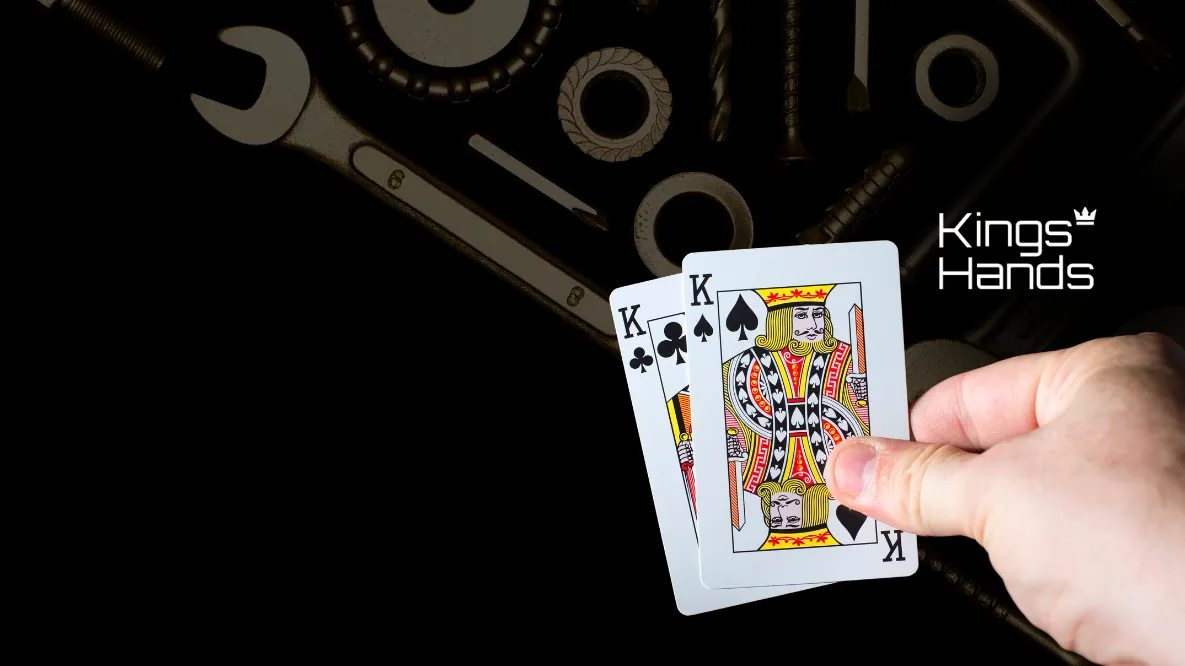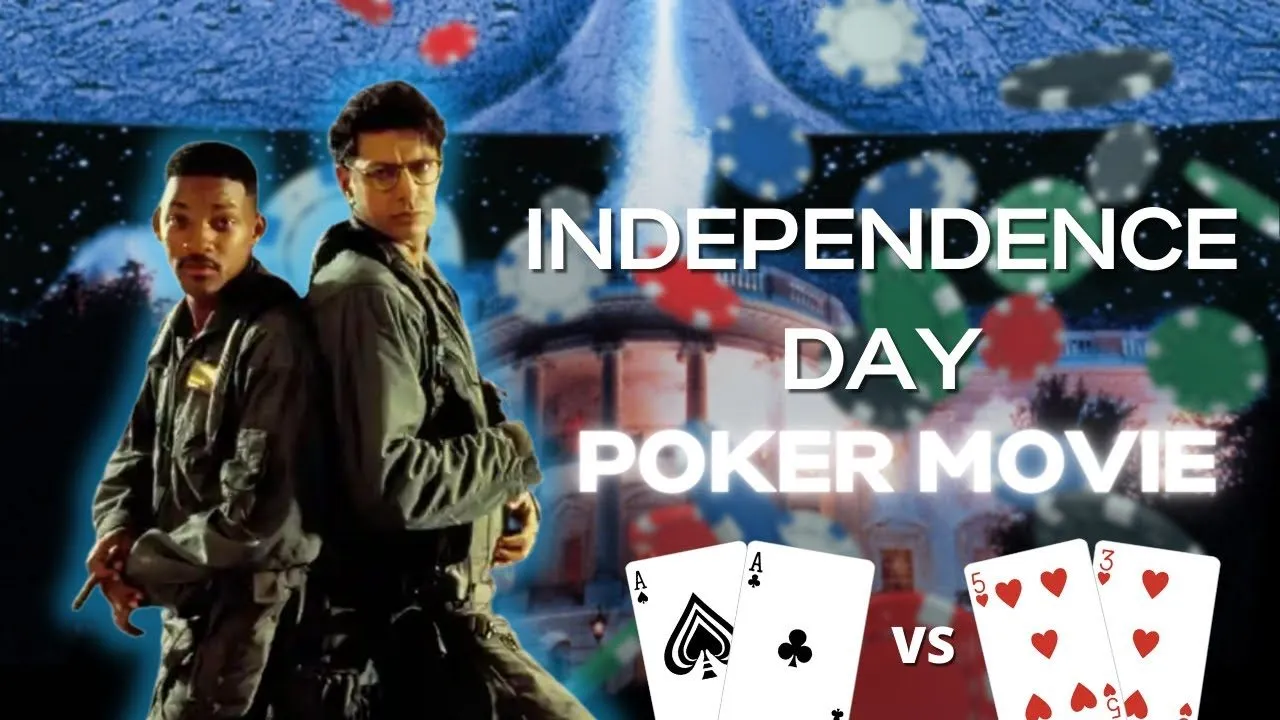The late stages of poker tournaments are often tense affairs, with huge money on the line and the potential for a life-changing score. Due to this intense pressure and the substantial amounts of money up for grabs, some players decide to do a deal with each other that splits up the prize pool more equitably.
But what exactly are these deals, why do people make them, and what type of deal is best for you? We’ll be covering all that and more in this article.
What is a Deal in Poker Tournaments?
A deal in a poker tournament is an agreement between the remaining players to split the prize pool in a way that’s different to the advertised payouts. This is often done at the final table, as there are few players remaining, making it easier to split the remaining prize pool. For example, if there are 3 players remaining in the tournament with advertised payouts of $500 for 1st, $250 for 2nd, and $150 for 3rd, the players may decide to make a deal which instead gives $350 for 1st, $300 for 2nd, and $250 for 3rd.
However, some smaller tournaments will also agree to pay a “bubble prize,” which awards a prize to the player who would have bubbled the tournament.
Why Do People Make Deals In Poker Tournaments?
The main reason people make deals in poker tournaments is to reduce variance and lock up a more significant win. In tournaments, the prize pool is often very top-heavy, with huge gaps between the places. You could guarantee yourself hundreds, or even thousands of dollars more by making a deal at the final table.
There’s already significant variance in late-stage tournament play as often the stacks get shorter towards the end, which means the difference between finishing 1st for $10,000 or 5th for $1,500 could come down to a flip of a coin. By making a deal, you can lock up significantly more than your 5th-place finish, at the cost of missing out on the chance to play for the first-place prize pool.
Should You Make A Deal In Poker Tournaments?
There is never going to be a definitive answer to whether or not you should make a deal in a poker tournament, as every tournament is different. You could play 100 final tables, and in each of them the quality of your opponents will be different, the stack sizes will be different, and the distribution of those stacks is going to be different.
Not everyone makes deals when playing in a poker tournament, as it allows them to pressure their opponents into making incorrect decisions. However, if you’re offered a deal, you need to determine whether it’s the most profitable decision for you, based on the variables at play.
If you think you’re far and away the best player at the table, and you have plenty of chips to play with, you should never make a deal. However, if you’re the short stack against a table of pros, it’s probably best to make a deal.
That being said, there are a number of different types of deals that can be made at the poker table, and the profitability of taking the deal will change depending on the type of deal you make. Let’s take a look at the three types of deals you may encounter when at the final table of a poker tournament.
Equal Split
The first deal you may see is the rarest of the lot – the equal split. This one is easy to work out, simply divide the remaining prize pool by the number of players left at the table. For example, if there are three players remaining and $900 in the prize pool, you simply divide $900 by three, meaning that everyone gets $300.
However, this type of deal is rarely seen outside of home games as it doesn’t take into account the chip stacks at the table. If someone had 999,998 chips and the two other players had 1 chip each, everyone would still get the same prize after making the deal. Obviously, this isn’t a fair way to deal, and most people won’t agree to an equal split unless the stacks are almost identically even.
Chip Chop Deal
A deal that you’re more likely to see when at a final table is a chip chop. This deal takes into account the size of each player’s stack and pays them based on the percentage of chips they have.
For example, there’s a poker tournament with three players remaining, with advertised payouts of $500 for 1st, $250 for 2nd, and $150 for 3rd, meaning there’s $900 left in the prize pool. Player A has 55% of the chips in play, Player B has 30% of the chips in play, and Player C has 15% of the chips in play.
To work out how much each player would receive, you simply multiply the remaining prize pool by the percentage of chips that each player has. For Player A you multiply $900 by 0.55 to get $495, for Player B you multiply $900 by 0.3 to get $270, and for Player C you multiply $900 by 0.15 to get $135.
As you can see, this type of deal rewards players based on the number of chips they have, making it a fairer way to make a deal.
However, in cases such as this, players may not be able to come to an agreement based on a chip chop. Given the stack distributions, Player C would get less than the $150 they’re already guaranteed, so they’re not going to agree to this deal. In these situations, you have two options, you can rearrange the payouts to compensate Player C more fairly, or you can do an ICM deal.
ICM Deal
An ICM or “independent chip model” deal is a type of deal that takes into account all possible scenarios and distributes the money based on the likelihood of those scenarios occurring. Like the chip chop, an ICM deal gives a cash value to each chip on the table, but not all chips have equal value – your last chip is more valuable than your millionth chip, as that last chip is all that stands between you and being eliminated from the tournament.
This is by far the most complicated way to make a deal, but it’s also the fairest way to do it. When you do an ICM deal, the player with the most chips will never get more than 1st place, and the shortest stack will never get less than what they’re already guaranteed.
Let’s say we’re at the same final table as our previous examples – there are three players left with advertised payouts of $500 for 1st, $250 for 2nd, and $150 for 3rd, meaning there’s $900 left in the prize pool. Player A has 55% of the chips in play, Player B has 30% of the chips in play, and Player C has 15% of the chips in play. How do we go about calculating an ICM deal, and how different do the results look to a chip chop?
So, with three players remaining, there are six possible outcomes, as demonstrated below.
- A-B-C
- A-C-B
- B-A-C
- B-C-A
- C-A-B
- C-B-A
However, the chances of these outcomes occurring are not equal – given that Player A has 55% of the chips in play, they’re going to win the tournament far more often than they come 3rd. So, the ICM model works out the percentage chance for each possible outcome. Then, it multiplies the percentage chance of that outcome occurring by the prize that each player will win. It does this for all possible outcomes and adds them up to arrive at their deal number.
It sounds complicated, but once you see the numbers, things become clearer.
For example, according to the ICM model, the C-A-B outcome has a 9.75% chance of occurring. To arrive at this number, the ICM model performs the following calculations.
Player C has 15% of the chips and therefore has a 15% chance of winning according to the model. From there, Player A has an 11-6 chip lead over Player B, which gives them a 65% chance of taking second place. To get our overall percentage, we multiply 0.15 by 0.65, which gives us 0.0975, or 9.75%.
This process is repeated for each position until we know the likelihood of each outcome occurring. Once we know that probability, we can input the numbers into a helpful table that allows us to calculate what each player would receive from the prize pool based on the likelihood of that outcome happening.
Outcome | % Chance | Payouts | Player A | Player B | Player C | Totals |
A-B-C | 35% | $500-$250-$150 | $175.00 | $87.50 | $52.50 | $315.00 |
A-C-B | 15% | $500-$250-$150 | $75.00 | $22.50 | $37.50 | $135.00 |
B-A-C | 24% | $500-$250-$150 | $60.00 | $120.00 | $36.00 | $216.00 |
B-C-A | 6% | $500-$250-$150 | $9.00 | $30.00 | $15.00 | $54.00 |
C-A-B | 15% | $500-$250-$150 | $37.50 | $22.50 | $75.00 | $135.00 |
C-B-A | 5% | $500-$250-$150 | $7.50 | $12.50 | $25.00 | $45.00 |
Totals: | 100% |
| $364.00 | $295.00 | $241.00 | $900.00 |
As you can see from the table, the final results of the deal are much fairer, bringing Player C’s potential earnings far above the guaranteed 3rd place prize, and moving Player A’s potential earnings further away from the 1st place prize. I’ve also taken the liberty of filling out the “Totals” row at the bottom of the page, so you can see that the math adds up.
Now, this is quite a lot of math to be doing at the poker table, but luckily, there are a number of ICM calculators online that will allow you to plug in the numbers and get the results instantly.
Which Type Of Poker Deal Is Best?
Given what we’ve found out, it can be said that an ICM deal is the fairest, but the best type of poker deal is the one that gives you the most money! If you’re a short stack, that means an ICM or equal split deal is going to be most beneficial for you, but if you’re a big stack, you might want to push for a chip chop to get a larger percentage of the prize pool.
Remember, just because these calculations return a “fair” payout based on the methods they use, you’re not forced to accept them. If you don’t think it’s a fair value based on your skill level and chip stack, you’re free to ask for more money or reject the deal entirely – if you don’t ask, you don’t get!
Summary
Making a deal in the latter stages of a poker tournament is a great way to reduce variance and lock up a decent-sized payday. There are three main types of deals that can be made in a poker tournament: ICM, chip chop, and equal split. ICM is considered to be the fairest deal, but always try and get as much money as you can from the deal, so don’t be afraid to ask for more than your fair share if you think you have an edge over your opponents!





















